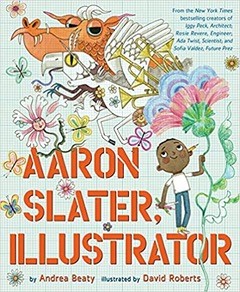
Hello Book Bums families!
We hope you and your families are well and adjusting to being back in school after winter break. In the newsletter today we offer some ideas for handling standardized testing and improving kids' handwriting. And, as always, we include some fun with books and language. Enjoy!
“Books are the plane, and the train, and the road. They are the destination, and the journey. They are home.” – author Anna Quindlen
Bookbums.com is an Amazon Associate; We earn from qualifying purchases. This means that if you click on a link to Amazon.com and make a purchase, We may earn a small commission at no extra cost to you. We do recommend the products. Feel free to find them by other means.
Word of the Week
linger (verb/action word) - to stay or wait around
Sara liked to linger after book club to chat with friends.
Literary Calendar
- In honor of A.A. Milne's birthday, January 18 is Winnie the Pooh Day.
- A favorite quote from Pooh Bear: "People say nothing is impossible, but I do nothing every day."
From our Bookshelves

An uplifting story about the power of art, finding your voice, and telling your story even when you’re out of step with your peers.
Aaron Slater longs to become a writer of stories, but he realizes that he struggles with reading and spelling. Aaron becomes frustrated, but he learns that with good teaching and hard work his skills slowly improve. He also realizes that through his art, he can beautifully share the stories in his heart.
*Interestingly, this book is written in what is called a “dyslexia-friendly font.” You should know research does not support the idea that one font is more easily processed for readers with dyslexia. The core deficit in many children with developmental dyslexia is a phonological processing deficit which means they have difficulty understanding the way words are made up of sounds (phonemes) and how these sounds are represented with letters (graphemes).
Tips for Families
Tips for Families
Testing. It can bring some anxiety to families. We’re going to try to help.
First, let’s appreciate that nationally-normed tests offer a way to see how your child is performing at school when compared, not just to their classmates, but to other kids their age, nationwide.
Too often, teachers and parents can believe kids are “doing fine” but the data reveal that, compared to others across the nation, the kids are really not doing so well. It’s better to know that.
Teachers can feel more confident with their assessment of student progress when it is corroborated by students’ scores on district-required tests. If a student is doing well with classroom assignments, but s/he isn’t performing well on the MAP (or another assessment), the teacher can take a good, hard look at the information provided, and make certain to adjust as needed. Additionally, when kids score extraordinarily well, but teachers hadn’t been aware of the child’s capabilities, the tests are equally beneficial.
Parents need to remember to ask how the teacher is responding to their kids’ performance. The teacher’s response should remind you of the good aspects of testing.
When dealing with children’s test anxiety, we like to frame it like this:
Taking that test tomorrow/this week is a good way to learn what you know. If you don’t know something, chances are your teacher hasn’t taught you, yet. No big deal.
This test is also a good way to watch your skills grow. We can look at your scores and watch them improve over the year(s). The best thing for you to do is take your time, do your best, and even when you’re tired and want to quit, keep working just as hard as you can. When you begin to lose some steam stretch a bit, take some deep breaths, and get focused in again. Sometimes it helps to put your finger under the words on the screen and read really quietly to yourself so you can stay focused. Just do what it takes so you feel really proud of yourself when you’ve finished.
And remember, we love you. No test score could ever change our feelings about the great kid you are.

Tips for Readers and Writers
If you know a child who is reversing letters and numbers, realize that those reversals are not indications that the child has dyslexia. Typically, those reversals are simply age-appropriate errors.
I’ve added a link that provides accurate information regarding dyslexia and a similar issue, auditory processing disorder, that you might find helpful.
information re: dyslexia and auditory processing disorder
If you would like to schedule an assessment with Dr. Christy to address any concerns you may have with your child or a child you love, please use this link: https://bookbums.com/assessment/ We are happy to help.
You should know that many children have not been taught, explicitly, how to form letters, and that is why they’re reversing letters and numbers. When children “practice handwriting” without the watchful eye of a coaching teacher, the student’s writing of letters becomes more of an art project. What they produce just has to look something like the letter they’re working on. We must explicitly teach kids how to form each letter in such a way that promotes tidy, efficient handwriting that comes with automaticity. Letter formations need to be practiced so that the cognitive load of thinking about the formation does not impede the act of spelling and writing.
At Book Bums, we won’t have any handwriting workshops until this summer, but we’re happy to share the tools we use and the progression that is almost magical when it comes to improving students’ handwriting—which always leads to better self-esteem. Ask any child who is smarter when showing them two pieces of written work, and they always say that the student with more tidy handwriting is smarter. Of course, this is not true, but kids think it’s true, nonetheless. If you would like Book Bums resources, please contact up.
Practical Grammar
Do you know the best way to calm a grammar nerd who’s become frustrated with his friends’ errant texts and social media posts?
Embrace him in a warm hug, pat his back and say, “There, their, they’re.”


If you know someone who would benefit from our newsletter or tutoring at Book Bums, please share this email with them! Thank you.
Copyright © 2024 Book Bums, All rights reserved
Our mailing address is:
7967 Cincinnati-Dayton Road Suite L
West Chester, OH 45069

